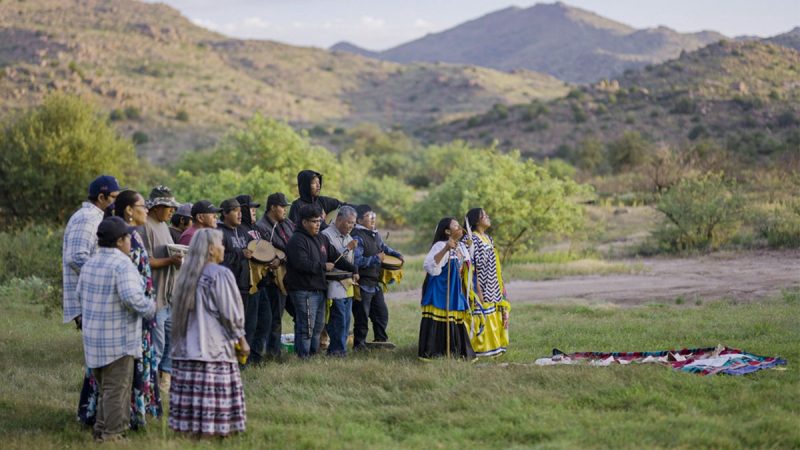In a landmark legal battle that challenges the protection of tribal land rights and sacred sites, the San Carlos Apache Tribe is taking its fight against a massive copper mine project to the doors of the Supreme Court. With high stakes for both the tribe and the mining company, the outcome of this case could set a precedent for how the U.S. government upholds its trust responsibilities and honors the sovereign rights of Native American nations.
At the heart of the dispute lies the proposed Resolution Copper mine, a project set to be developed on land that holds profound cultural and spiritual significance to the San Carlos Apache Tribe. Known as Oak Flat or Chi’chil Bildagoteel, this land has been central to the tribe’s religious practices and traditional way of life for generations.
However, the process of transferring Oak Flat to Resolution Copper has been met with resistance from the tribe and environmental groups who argue that the land swap deal orchestrated by Congress undermines tribal sovereignty and disregards the sanctity of sacred sites. Despite these concerns, in 2014, the National Defense Authorization Act included a provision authorizing the transfer of Oak Flat to the mining company, effectively bypassing environmental review processes and tribal consultation requirements.
What makes this case particularly contentious is the clash between federal laws that are supposed to protect tribal interests and the economic interests that are driving the push for the Resolution Copper mine. While the U.S. government has a legal obligation to consult with tribes on matters that affect their lands, the prioritization of mining development over tribal consent raises questions about the government’s commitment to honoring tribal rights.
Moreover, the dispute over Oak Flat highlights larger issues of environmental justice and the preservation of cultural heritage. Indigenous peoples have long been at the forefront of environmental protection efforts, advocating for sustainable land management practices that respect the interconnectedness of all living beings. The San Carlos Apache Tribe’s fight against the Resolution Copper mine is emblematic of a broader struggle for recognition and respect for indigenous knowledge and values.
As the case makes its way to the Supreme Court, the justices will have the opportunity to weigh in on the complex interplay between tribal sovereignty, environmental conservation, and economic development. The outcome of this legal battle will not only determine the fate of Oak Flat but also shape the future of tribal land rights and the government’s trust obligations to Native American nations.
In the face of mounting challenges, the San Carlos Apache Tribe remains steadfast in its commitment to defending its ancestral lands and sacred sites. By standing up against powerful interests and advocating for the protection of Oak Flat, the tribe is not only protecting its cultural heritage but also asserting its inherent right to self-determination and sovereignty.
As the Supreme Court prepares to hear arguments in this pivotal case, the eyes of the nation will be watching to see whether justice will be served for the San Carlos Apache Tribe and whether the sacred bond between indigenous peoples and their lands will be upheld and respected.

